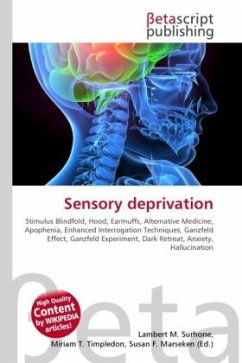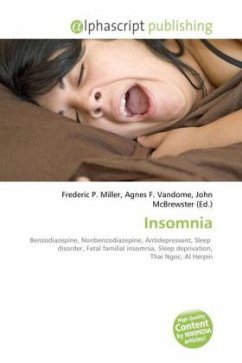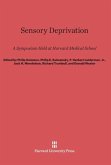Please note that the content of this book primarily consists of articles available from Wikipedia or other free sources online. Sleep deprivation can adversely affect brain and cognitive function. A 2000 study, by the UCSD School of Medicine and the Veterans Affairs Healthcare System in San Diego, used functional magnetic resonance imaging technology to monitor activity in the brains of sleep-deprived subjects performing simple verbal learning tasks. The study showed that regions of the brain''s prefrontal cortex displayed more activity in sleepier subjects. Depending on the task at hand, the brain would sometimes attempt to compensate for the adverse effects caused by lack of sleep. The temporal lobe, which is a brain region involved in language processing, was activated during verbal learning in rested subjects but not in sleep deprived subjects. The parietal lobe, not activated in rested subjects during the verbal exercise, was more active when the subjects were deprived of sleep. Although memory performance was less efficient with sleep deprivation, greater activity in the parietal region was associated with better memory.
Bitte wählen Sie Ihr Anliegen aus.
Rechnungen
Retourenschein anfordern
Bestellstatus
Storno








